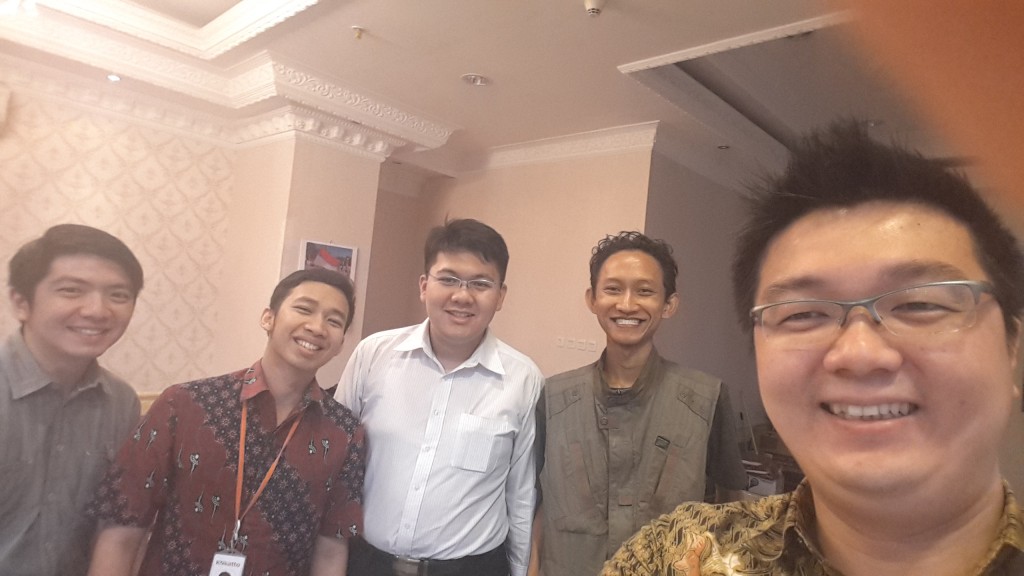Transitioning to overseas study can be more surprising than what you may think. Find out more on some thoughts you may come with and how to face them:
…, it isn’t that difficult to find Indonesian food. – Daniel W. S. (CMU (Pittsburgh, PA) student)
Local people don’t really care if you’re an exchange or whatever kind of foreign student. – I. Aditya H. (NTU (Singapore) student)
The communication is harder than expected. – Qiqian C. (Monash (Melbourne, VIC) student)
Going downtown now becomes a luxury – Eric V. P. (NTU (Singapore) student)
– Some of the surprises faced by some people I asked after they started their overseas study
Application and post-acceptance processes are indeed tough tasks (but not to worry, I got some tips for what to do after you got accepted and how to pack for departure), but that doesn’t mean it’s the end of the journey. Instead, I even find it a bit like the initiation rite before the real stuff: studying overseas itself.
Despite the humbling processes we have endured, we’re still yet to be surprise-proof. Here I put some of the more common surprises, and also ways to deal with it:
- My campus is so far from downtown!
Chances are, some evil forces decided to throw us away from the happier side of life downtown. 😜 Just kidding, but campuses tend to need a large amount of space, and the downtown area is too prime for such thing (or maybe the endowed land is a bit far away, but still it’s a great start compared to buying land at a steep price). Definitely irksome, especially when you know people call your university as an island of its own (like, well, mine, snakes fighting on campus included).
What to do: Stay on campus and get what’s only available downtown when you go there. While staying outside may be tempting as it allows (slightly) more freedom to go to the city, in the end you may still don’t want to go to the city that often, internship in the city excluded. With a whole set of tutorial questions (or psets as some may say) and lecture recordings put right in front of you, chances are the last thing you want is a commute to your nth home. Also, with enjoying downtown-exclusive stuffs (think of that orchestra concert or food buffet, stipend permitting), you’ll be satisfied enough to stay away from the city for quite a while.

- The assignments are tough! If only I can ask my professor…. 😖
Studying in university is indeed different from studying in high school. Unfortunately, as freshmen some of us may still find the (semi) spoon-fed studying method necessary for us to grasp the material. Think of, for example, taking an all-nighter on late assignments only because you forgot a semicolon and right bracket on your code. On the other hand, professors tend to be more research-oriented than teaching-oriented (except if your university is more of a teaching-focused one, which is a different story). This means, on one hand, there’s a good chance of him really being an expert of the topic, but on the other hand can also mean a more limited availability. Therefore, chances are they can’t teach you like how your mom would teach you when you’re a baby.
What to do: When in dire situations, please ask your professors. They’re not gods and their offices aren’t sacred, either. Make sure your questions are worthy answering, though, since they have little time for BS. When you have access to your colleagues (which I hope so), don’t forget to ask to them as well since they probably can bear your syntax error issue better than your professors. In the meanwhile, ponder again if your current major is what you really want to take, for chances are some people get unmotivated because of their majors.

- I thought befriending locals are easy 😭
One of the main points cited as the reasons of studying overseas is to get more friends from various places. Although naturally local students should be aplenty, there seems to be a barrier between foreigners and locals, not to mention foreigners of different nationalities. These differences can be evident in various co-curricular activities, especially on universities with quite many foreigners, where they tend to cluster themselves at times. On the other hand, you don’t want to fully rely on Indonesian students’ associations for it may slow your adaptation process as I mentioned on my column on preventing homesickness (did I say that emulating such clusters may have the same effect?)
What to do: Don’t expect locals to accept you that easily. Chances are, they may have bonded earlier than what you think (for example, pre-freshmen camps). One great idea if you’re really that interested will be to randomly assign yourself to project groups (remember, random != pseudorandom), on which case you’ll get to experience working with (and hopefully befriending) locals and other foreigners.
- Am I among the worst here?
At times, we happen to see some of our colleagues coming from a more privileged background, such as represented Indonesia in international science olympiad, or maybe being exposed to the desired major well before studying in university. On one side, that can mean two good things: your university has attracted great talents and you now have the chance to mingle with those better than average people*. On the other hand, however, it also means a sign that competition is going to be extremely stiff (which I even believe is still an understatement) and that it’s always possible for the average people (me included) to be slightly intimidated.
What to do: Think of friendship paradox. For most people, their friends tend to be more popular than they are since the few people with many friends skew the average number of friends for everyone. Also, Young-Ho and Hang-Hyun attempted to generalized that paradox and found out that chances are, our friends are also better than we are. This becomes important as that way we tend to get exposed with people better than you are, while there are actually a lot of people being in the same position as us. Not to worry, however, since past performance may not be an indicator of future results as proven in the case of mutual funds, and therefore we still have the chance to improve ourselves.
- I seldom heard of internships and exchanges before, but now I hear it everywhere.
University is often associated with freedom, even though such combination, according to Mary, may not be always fun. Therefore, it’s natural that as we take control of ourselves, we also want to smoothen our pathway to post-graduation jobs. In addition to that, university is one of the few moments where we can live more carefree than usual, so our innate interests to explore may take part as well. What finds it daunting, however, is the moment when we saw our seniors’ LinkedIn profile and found that they got so many stuffs to tell, while as freshmen most of us still have little to no story.
What to do: Plan ahead, but stay flexible with it. You won’t realize this early, but after I finished my first half of my undergraduate study I felt that two years are fast, I mean really fast and suddenly I need to look for my university-sanctioned internship. As time passes, it would be good to reflect and, if necessary, change your plan for sometimes new possibilities and issues would come. Last year, I thought of joining some co-curricular activities, and as some of my applications get rejected, I got ample time to join IM as a (not so cute ☺) columnist.

- Bonus: I thought I won’t miss home this bad!
Homesickness is something we don’t know if it will come, when will it come, and how will it be. As most of us may have just departed for overseas study for the first time, we are some of those more prone to the situation.
What to do: Find out more at this article on managing homesickness. 😏 I won’t let my sneak peek destroy the joy of reading that column, though, so have a look!

University experience may be daunting at first, but once you get the crux, it feels so natural until all of a sudden you’re faced with those finals. Make use of all the resources available, network, and lastly, enjoy your university experience (for you only die once).
See you on the next column!
I can’t read minds, but at least I can recommend some great articles for you:
- Looking to save your stipend without missing all the fun side of studying overseas? Find out more here: http://bit.ly/2bMk3kG
- Studying overseas almost always mean fleeing from our parents’ supervision, but is it always fun? Get the answer here: http://bit.ly/2bDx5xN
All photos are taken by me and are free to use by attributing the author except otherwise stated.









[…] This is the second article on the Starting Your Overseas Study series, designed for you to start your overseas study in a great way. To find out about what some of us may think when we started studying overseas (and how to cope with them), click here. […]